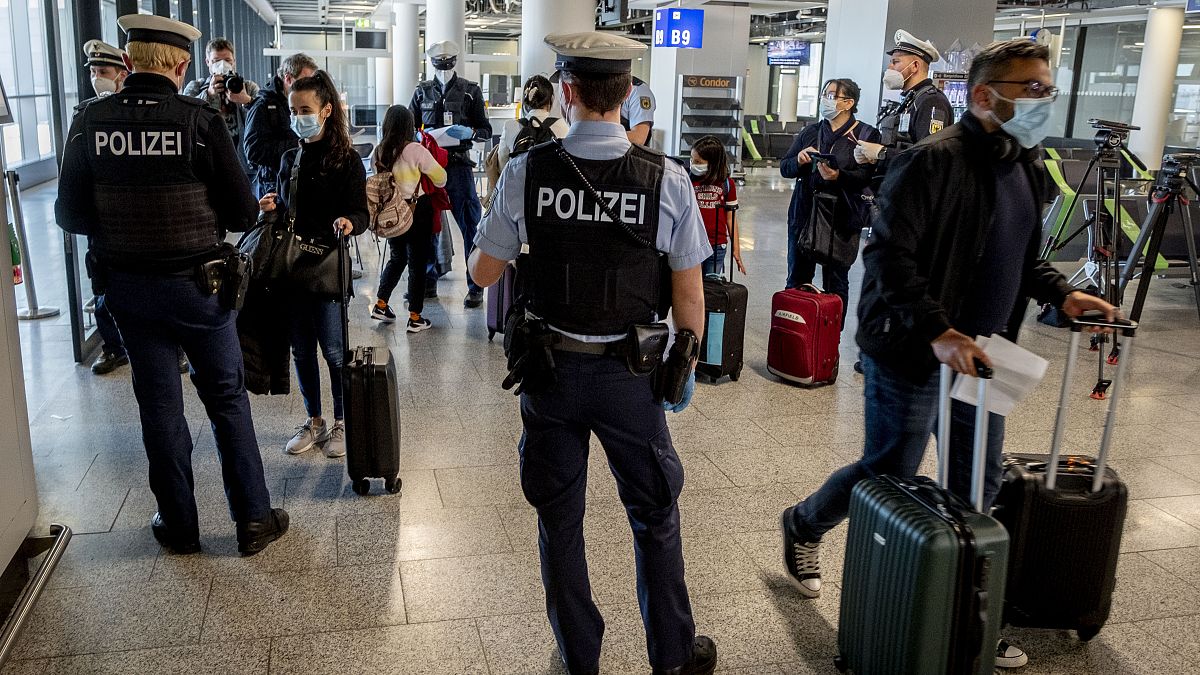Brussels considers that the latest scientific advice indicates that vaccination "considerably helps to break the transmission chain".
The European Commission recommends that member states allow the entry of citizens from non-EU countries who have been fully vaccinated against coronavirus using a vaccine approved by the European Medicines Agency (EMA).
As of today, the EMA has approved four vaccines: Pfizer-BioNTech, Moderna, AstraZeneca and Janssen (Johnson & Johnson).
Vaccines that have granted emergency use status by the World Health Organization (WHO) could also be accepted. This list is currently equivalent to that of EMA, although a decision on China's Sinopharm and Sinovac is expected in the coming days.
Individuals should receive the last recommended dose 14 days before their arrival.
The Commission also wants member states to lift all travel restrictions, such as testing and quarantine on arrival, for the fully vaccinated tourists entering their territory. This should apply to both EU and non-EU residents.
In order to issue this recommendation, which still has to be approved by member states, the executive is taking into account scientific advice indicating that vaccination "considerably helps to break the transmission chain".
The WHO, however, still insists that "the efficacy of vaccines in preventing transmission is not yet clear".
Brussels believes that the roll-out of the digital green certificate (travel pass) that is foreseen for the summer will help countries facilitate the entry and movement of vaccinated people.
Before the instrument is formally introduced, the Commission suggests that countries accept certificates from non-EU countries "taking into account the ability to verify the authenticity, validity and integrity of the certificate and whether it contains all relevant data".
Additionally, Brussels hopes that the World Health Organisation and the International Civil Aviation Organization (ICAO) advance their proposal for an internationally recognised proof of vaccination.
'Good epidemiological situation' will allow countries to be added
Besides taking into account vaccination, the Commission also recommends expanding the list of countries that are considered to have a "good epidemiological situation" and whose residents are allowed to enter the bloc for non-essential reasons.
This list currently encompasses just seven countries: Australia, New Zealand, Rwanda, Singapore, South Korea, Thailand and China (the last one, subject to reciprocity).
The main criteria to decide this list is the 14-day COVID-19 case rate per 100,000 inhabitants, which could now be increased from the original 25 to 100, still below the current EU average (around 420). A EU official said countries like Israel and the United Kingdom could be soon green-lighted, but added "the US it not yet there".
The Commission wants the Council to review the full list at least every two weeks, making it easier to add new countries, and expects the selected nations to act with reciprocity.
If the epidemiological situation of a non-EU country worsens quickly and, in particular, if a coronavirus variant is detected, any EU country will be able to "urgently and temporarily suspend all inbound travel by non-EU citizens resident in such a country", the Commission said.
This "emergency break" should be discussed in close cooperation with the other 26 member states and the Commission.
Those travelling for essential reasons (such as healthcare professionals, seasonal workers, family reasons or study) should continue to be allowed to enter the EU, "regardless of whether they are vaccinated or which country they come from", the Commission added.
The executive is confident the Council will endorse the recommendation before the end of the month. The first discussions will take place this week. Even if the Council ends up adopting the recommendation in its full scope or with amendments, each member state would still be entitled to choose whether or not to implement the measures.
Despite repeated efforts from Brussels to coordinate travel restrictions, EU countries continue to exercise their national competences and follow divergent approaches.
